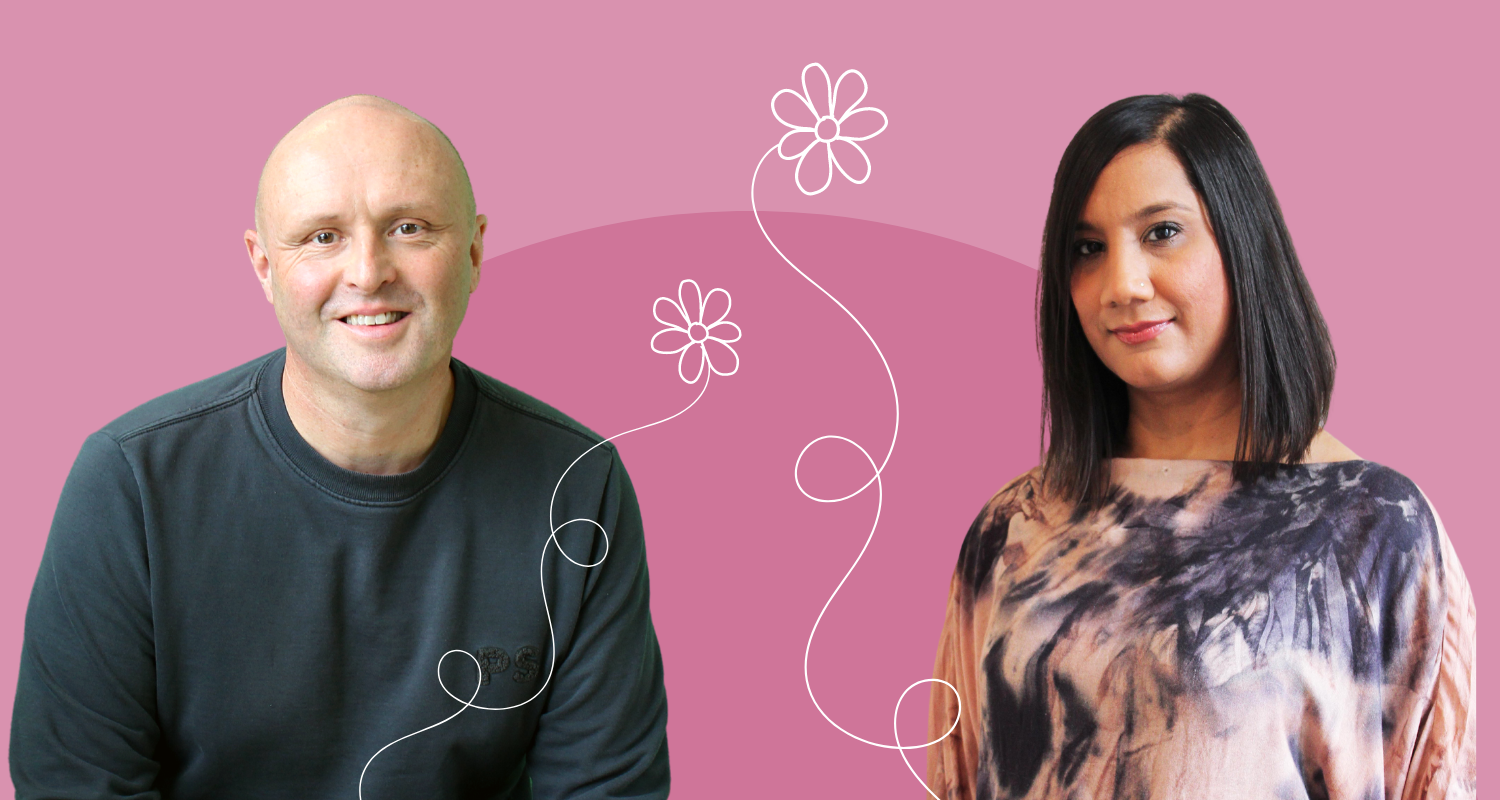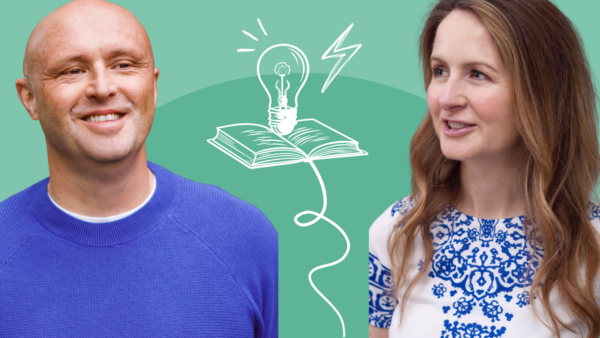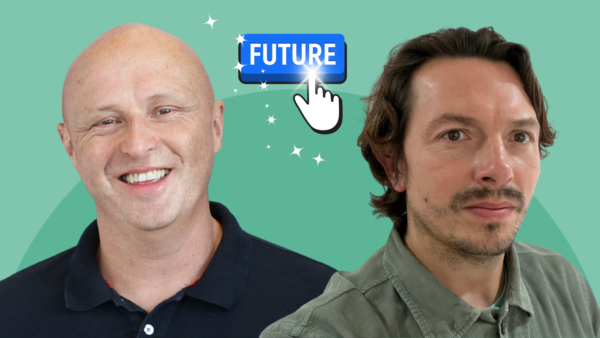Podversation trascript:
Hi, my name’s Dr Paul Brewerton, the strengths guy, Doctor of Organisational Psychology and founder and Chair of Strengthscope. I’m very excited today to have on the show Shetel Khimashia.
Shetel is a Learning/Talent Development specialist who has had the most fascinating career, having worked for Nike, Hugo Boss, Ralph Lauren, Channel 4, Moonpig, Investigo, Spendesk and Voi Technology, as well as operating as a freelancer from time to time…and your career is the topic of our podcast today.
Welcome Shetel
Hi and thank you for having me again.
Shetel, you came in the show quite a while back and you talked extensively about your 6 years at Channel 4 – how you introduced strengths and the development programmes you introduced into the business. If you’re interested, please search for Shetel’s name or for Channel 4 and you’ll find it. Rather fabulously, Shetel was the first guest EVER to have come onto the strengths guy podcast…now of course renamed as the Psychology@Work podcast with the strengths guy.
That day, we talked about Channel 4. Today I want to get much more into a convo about your career. Your squiggly career. And find out more about what’s happened during it. The highlights, the lowlights, your learnings.
Let me start by asking, how would you describe yourself as a professional, and how have you arrived where you are today?
I’m an accomplished Talent/Learning Development consultant.
Within that I’m a talented and capable woman with many transferable skills and experiences.
I don’t see myself as the finished article and I always find myself learning and growing and pushing my boundaries of self-improvement.
My career spans over 20+ years and it’s been nothing short of an adventure.
My degree has nothing to do with my profession . . . I have a degree in ‘Engineering Product Design’
And as I reflect back and 25 years on, it’s most definitely given me some deep teachings and key principles that show up for me in how I approach my work now,
and this is where I get my design/systems thinking and creativity from.
I spent nearly a decade at Nike and that was a pivotal moment for me in my career.
I was working for one of the world’s number one brands where I was exposed and experienced so much in my early career, which I’m forever grateful for and to this day Nike lives in my DNA.
But… This is where my true passion for training and development was born.
I used to train employees about the products ( the technology that goes into Air Max trainers) and then I slowly moved into people development.
It was at Nike where my passion and curiosity for coaching and leadership came from (coaching comes from track and field and the sporting arena).
Without me knowing at the time, it was my pathway to where I am now.
My time there taught me what I want to do
and I know that the way to do that is to build deep and lasting relationships and be an in-house consultant.
From Nike to now, I’ve made many shifts from role to role and each one took my career in a slightly different direction
but brought adventure and greatness to me.
Some of these moves were driven by my own desires of growth in bigger global or European roles and there was the clear upward ladder.
Other times it was lateral moves to change companies to have newness and breadth and then move back up again so more experiences and refinement is gained.
And recently, it’s been a shift of sectors and industries, to have exposure, experiment , adapt and re-learn in many ways – yet still growing my career with purpose.
I’ve been fortunate to work for the world’s most recognised brands across the retail arena, then stepped into Media and then into tech organisations
Fast forward to now and throughout this whirlwind and since 2020, I’ve had 4 jobs (moving on to my 5th) and to me that is the epitome of a ‘squiggly career’.
Over the past three years (during the pandemic times) the world has pushed me to grow and in many ways and it’s been transformational.
I had to unlearn to relearn and transition myself to different industries.
I left Channel 4 at the end of March 2020 right in the thick of the pandemic.
Left virtually so didn’t have the chance to say bye to those that I built such strong relationships and friendships with in person.
I woke up on 1st April (April fools day) with no job and a pandemic …and my only mechanism at the time was to laugh.
How on earth am I going to navigate this????!!!!
Companies didn’t know what they were doing,
will I now get a job and how long will this last for…..so much ambiguity and anxiety.
….but one thing…. I was clear about was my talents, experience and the type of role I wanted, so I kept looking and applying, which also meant being open to step out of the media world and into different sectors/industries.
Then a month and a half later, my dad passed away unexpectedly so I needed to get through that which was very intense with lots of mixed emotions on top of everything else.
I was still interviewing and keeping myself busy with my learning by attending webinars.
And…There was one particular webinar that I attended and it was with David Zinger and it was about ‘noticing’ and understanding what was going on for you at that moment.
It was at that point… where suddenly it struck me that I was actually grieving my old self (who I used to be and I felt like I was gone).
A few months later, I found a role and was settling in this and then I was hit with Covid.
And with long covid symptoms which sent me in a complete spin losing my senses (taste, smell and chronic fatigue for months) and to me it felt like a loss of identity and again grieving for my old self, but still trying to remain optimistic and work through this whilst working.
The only way I can explain this is… I was living in ‘my light and shadow’ and it was really creating this ‘push and pull tension for me.
The light represented the newness and excitement (new role, company, new sector, new possibilities and stretch)
The shadow was my old self and grieving for the way I used to work and the level I used to operate at.
This is where I learnt to make most of the ‘light’ to compensate for the parts that were missing in my ‘shadow’.
But despite all the changes, I always act on purpose and focus on what’s important
When we are clear about that, we don’t get buffeted around so much.
So for me . . . even though some of these roles that came my way weren’t completely ideal, it was still ok.
Because I had the clarity, I was still able to carve out where I can make my contribution and was still able to grow and find opportunities even though it wasn’t completely ideal.
I’d love to get some tips from you on managing your own career. What are your top 3 for making career choices that are right for you rather than finding yourself in a role or heading in a direction that isn’t right?
- Be crystal clear with yourself on what you are looking for, the sector, what you bring and your worth (this will help you to articulate your salary expectations)
- will this environment or scope of role allow me to express my talents, can I see myself working there, can I grow personally and professionally.
- Know your terms – what are your negotiables and non-negotiables.
This helps to know where your boundaries are and where you are open to be flexible. It helps to keep you grounded and assert yourself with recruiters.
But we don’t truly know what it’s like until we get in there as interviewers are selling you the role and you are selling yourself.
Tell me about job searches, how have you found the right roles for you? Any mistakes?
LinkedIn has been my go to place and I have recruiters always calling me for opportunities, so have very much been on their radar.
I’ve learnt to sift through the good and the not so good ones. You will know in your interactions with them if they are just selling to you or if they generally have your interests at heart.
I’ve been very fortunate to have many roles come to me throughout my career and some that I entertain and explore further as curiosity gets the better of me.
Then there are others that I don’t explore and decline as it doesn’t fit into either my present or future self or just isn’t the right time and I’m not looking- and that’s ok.
Yes, there have been mistakes.
There’s been an occasion where I signed up for a role and once I got there things changed and before I knew it the role became really operational and involved technical health and safety training.
Definitely not Talent Dev and building capability. There had been a change in leadership so I was honest enough with myself to know that this isn’t for me and moved on easily into a new role and company.
As much as it was annoying at the time that frustration didn’t last long and it was ok.
What about finding the right kind of culture and team where you can be authentic you, any tips for how to do that? It can be hard looking from the outside.
Do your research and look at the company values – how congruent are their values with yours? Look them up on social media, how do they showcase themselves and their EVP in how they tell stories.
Look at the board reports and what’s happening in their organisation.
If you know anyone that works there, ask them what it feels like to work there and how are the values exemplified?
During the interview , you will get a sense of their tone and style of interaction. Do they embody their values? Do the values show up in their interactions and the way they communicate?
During the interview, notice what’s happening with you.
What is resonating with you or going against your grain? How is it making you feel? Does it delight you or trigger you?
This is all good data and evaluation of how their values show up.
What about getting the job, tips for recruitment interviews and assessments? Any stories?
Start prepping yourself and your mind and
ask yourself the following . . .
What is it about the job role (scope) that excites you?
Are there parallels to your experience and transferable skills?
Consider how you would articulate this and have examples to hand. Practice where needed.
Is there newness for you within the role that provides you with the stretch and growth? (if that’s what you’re looking for?)
Remember,you don’t need to have all the boxes ticked, but . . . as long as you can demonstrate your understanding of what is required and why it’s important to them.
Think about the questions you want to ask them and have them prepared- remember it’s a two way interview. You may be right for them but are they also right for you?
Research the company from all angles:
- what they do/known for – their product, consumer base
- their values and career site – will give you a feel of how they view their employees and what opportunities there are. Also give you an indication of their values and tone of language – which you can echo in the interview. Important for you to know whether their values resonate with you and can you see yourself working there?
- What is their Employee value proposition (EVP)? benefits, perks etc)
- Have they won any awards?
- Are they in the growth stage or are they going through transformation?
- How is the team / org structured? (flat or matrixed environment) – that will indicate or open up conversations of ways of working
Regarding assessments, have a practice run if that is available to you and answer them honestly. It can be daunting, especially if they are timed assessments.
Top tip, don’t try to outdo or trick the assessments.
They have been carefully designed to assess you.
If you do this you will probably find yourself in a ‘right pickle’ and could end up in the wrong job or not be able to demonstrate your capabilities at the next stage of the interview process.
So embrace it and use it as a learning tool.
You can always ask for your report so you can review the results in your own time!
What about managing your brand online. Social media? LinkedIn? Any thoughts?
Be clear on what you’re using social media for and the role you play in this.
Are you someone that is ‘active’ and posts/shares all the time or are you the ‘observer’ (looking at things from a distance and being more of the ‘sponge’).
Also, what is the right platform for you to get noticed?
For me, I use Linkedin for professional purposes, making connections, reading articles, and seeing what others are doing.
I’m quite selective with regards to posting content. Generally when I‘ve got something to say or I want to share I do so.
BUT, I’m also not worried about disappearing in the background as well.
I definitely don’t place unwanted pressure on myself to be seen or constantly being active on there and I turn my notifications off so I’m not mentally wired up with all the various apps and platforms pinging my phone constantly.
However, one thing I’m super purposeful about is asking for ‘recommendations’ as a way to gain genuine feedback from those I’ve worked for or with, and where I want and value their feedback.
Women tend to shy away from asking for feedback and may worry what others may say or don’t want to bother others,
but use it as a gift and acknowledgement of what you brought to them/or what you brought to the table during your time at a company.
Remember every recommendation serves as an online review about you
and it gives the outsiders a window into what it’s like working with you and the attributes you bring.
So make that one of your habits!
And what role has strengths played in your career – from a professional and from a personal POV?
Throughout, my strengths have been like my ‘north star’ and they’ve helped me to navigate complexities and elevate my game, whilst developing my grittiness.
They’ve allowed me to express myself in my most authentic way. I mentioned in the last podcast that in many ways my strengths have allowed me to and put my unique stamp on things like I’m ‘autographing my work’.
On a personal level, valuing myself with heightened self-awareness is key.
My strengths have always played a vital role in my life both personally and professionally and they are very similar to my values – so I need to be in roles where I feel congruent and can express and leverage my strengths.
When you’re in the right place it feels easy and you will be your most authentic self. The environment will bring that out in you.
Overall they keep me grounded, I know what nurtures and energises me and I now have enough trust in myself to be courageous in situations
such as making a bold move in leading a project , taking on new opportunities and self improving, or simply knowing if it’s time to move on.
What are your biggest learnings that you’ve had during your career?
I‘ve had so many and I’ve narrowed this down to 7 key learning points.
1. That clarity and purpose have been my most powerful helper throughout my career.
I’m clear about what I want and don’t want.
What I want is fundamental to my decision making and any opportunities that come my way, I can evaluate this against the bigger picture of my life.
2. I need diversity in my role – in terms of breadth and projects. Narrow roles tend to suffocate me.
Especially as I have so much experience to give and have a tendency to always connect dots, I think broad and systemically. Having had broader roles has allowed me to carve out opportunities many times.
I’ve also learnt the importance of demonstrating leadership in ‘non-leadership’ roles by providing lateral leadership (leading across the org) or becoming a mentor, coach and even found problems and turned them into opportunities to lead shape and own projects, which ultimately has built my portfolio.
3. I don’t expect others to drive or carve out my career, only I can do this.
Taking sole responsibility for my career totally places me in the driving seat. And that’s a powerful position for me to be in.
4. That I have gained so many valuable experiences, talents and strengths that are transferable to other industries. This has allowed me to be courageous and move and adapt to different contexts and sectors easily.
5. To be ready to adapt and be agile – especially in scale-up environments where it’s forever a moving landscape and you have to be able to navigate ambiguity.
A good example of this is in two different companies I was at and both are scale ups.
My line manager had left as soon as I started. That’s because it’s fast moving and roles come and go, so you need to be able to flex and pivot as the environment demands that from you.
6. Being open to different ways of working and collaborating. There are so many new technologies and platforms. I’m a huge fan of collaboration and it’s one of my top strengths for sure, but in the’ scale up’ world, I’ve seen collaboration go into complete overdrive to the point where you get ‘interference’ and overwhelmed by the comms.
So you need to learn how to minimise and take control and that’s by learning the bits you need to be involved in and the other bits you just shouldn’t touch with a barge pole – that’s an important part of your dev or transition to start up/scale up.
7. Lastly, there has been a transition in the marketplace.
A decade ago it was frowned upon if someone had only been in a role for 6 months. That would be a struggle to explain that in terms of your CV.
But nowadays that is not an issue.
There’s been a real shift . . .and the spin has been to take experimentations and not to be frightened to take risks and being prepared to explore things.
We all know until you are in something you never know what it is going to be like (for example the ways of working, how they live their values).
If people want to get in touch with you, what’s the best way?
LinkedIn is the best way for me.
I’m always open to expanding my network and happily have a chat on private message (but with purpose though, otherwise it’s a waste of my time).
Any resources – books, podcasts, videos, anything – that you’d recommend people look at?
Well, I’m a fan of your podcasts Paul – there’s always something that resonates with me and you have meaningful topics that help me ‘just in time’ that I can grab and top myself up on.
I really like the book ‘The Squiggly career’ (clearly that is what we’ve been talking about today) – It’s a book that is essentially your coaching toolkit to help you design your career and it’s easy to digest with many practical tips that you can work on throughout.
‘How Women Rise’ is another great book in understanding the habits that we may be living daily and how to break them so we succeed and really take control of our careers.
I’m obsessed with Brene Brown and her teachings. She has many books, podcasts, TED Talks.
I attended the ‘Rising Strong’ course which created many light bulb moments for me. It was like ‘peeling my onion and getting to my core’.
And from a wellbeing point, I use the Clementine app which is for women (men too) focused on hypnotherapy for sleep, confidence and anxiety.
Very calming and a trusted voice speaking to you.
Works for me as the experts use Hypnotherapy and NLP techniques, which is very descriptive and allows me to visualise which supports my learning style.












